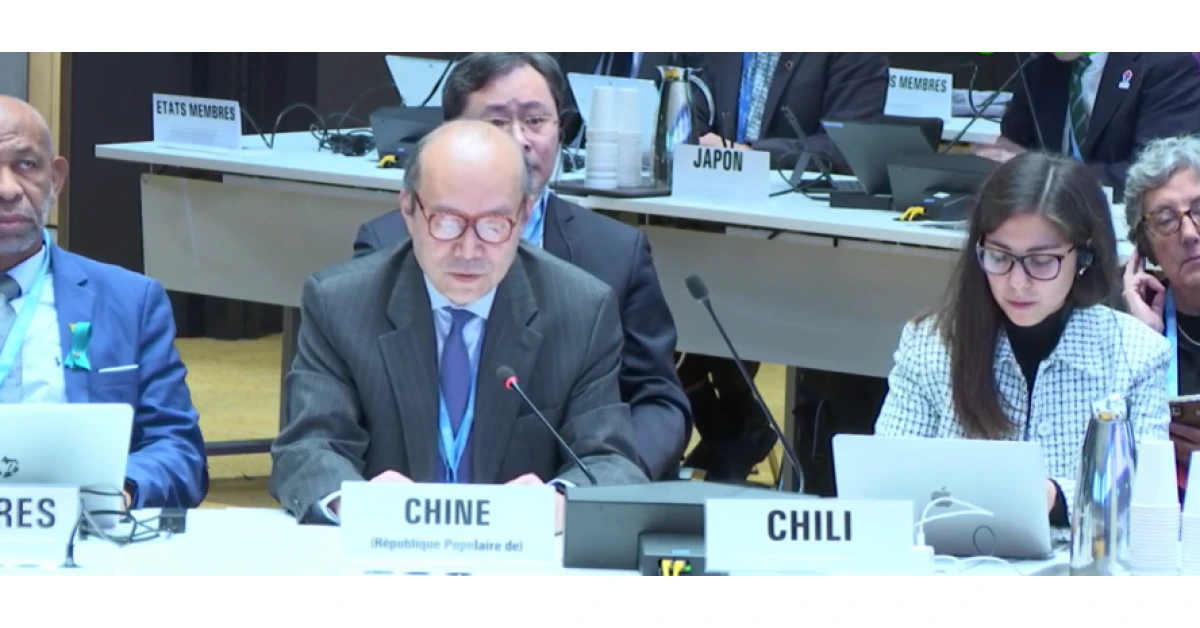
SWITZERLAND – China’s financial contribution to the World Health Organization (WHO) is expected to rise significantly if member states approve a planned 20% increase in assessed contributions at the upcoming World Health Assembly (WHA) in May.
The proposal aims to distribute WHO’s budget costs more fairly among its 194 member states, reflecting each country’s economic strength.
If the increase is approved, China’s payment would jump from US $87.6 million in 2025 to US $137.8 million in 2026.
This would make China’s contribution even larger than the United States’ US $130 million for 2025. The U.S. payment would rise more slowly to US $155.6 million in 2026—if the country remains in WHO.
The new assessment is based on an updated UN formula that considers GDP, debt burden, and development status, leading to a higher share for China.
As a result, China would cover 20% of WHO’s total assessed contributions in 2026, compared to 15% in 2025. Meanwhile, the U.S. share would stay steady at 22%.
U.S. withdrawal and financial challenges
U.S. President Donald Trump had criticized China’s relatively low WHO payments, arguing they were unfair compared to the country’s economic power and population.
This was one of the reasons for the U.S. decision to withdraw from WHO in early 2020. In addition to its assessed contributions, the U.S. has historically donated hundreds of millions to WHO programs.
Without the U.S., WHO expects to receive about US $537.4 million from the planned 20% increase in member contributions.
If the U.S. remains in the organization, total contributions would reach approximately US $692.9 million. However, even with this increase, assessed contributions would cover only 22–28% of WHO’s proposed US $2.45 billion budget for 2026.
To prepare for a possible U.S. withdrawal, WHO has already cut US $400 million from its budget for 2026-27.
China pushes back against higher fees
Despite the overall plan to raise contributions, China has expressed opposition to another 20% increase for 2026.
The proposal, originally agreed upon in 2022, is part of a long-term goal to have member states cover 50% of WHO’s budget by the end of the decade.
Speaking at a WHO board meeting, China’s delegate noted, “At present, the global economic recovery remains sluggish, and both Member States and international organizations are exercising caution in increasing their budgets.”
The delegate acknowledged China’s prior support for the 2024–2025 increase but did not support another hike for 2026-27.
However, China’s stance was largely isolated, as many African and European countries supported the increase.
Ethiopia, speaking on behalf of 47 African nations, stated, “We … wish to join others in supporting the 20% increase in assessed contributions, which we think is even more important now that it drives our intention in our work towards sustainably financed WHO, providing more support and better support for countries.”
Debate over WHO salary increases
In addition to budget discussions, member states questioned a proposal to increase salaries for WHO’s senior staff by 9.5%.
If approved, the salaries of the organization’s 10 assistant director-generals and regional directors would rise to US $216,655 per year in 2025, up from US $198,000.
The Deputy Director-General, Mike Ryan, would earn US $235,064, while WHO Director-General Dr. Tedros Adhanom Ghebreyesus would receive US $293,003.
Dr. Tedros defended the proposal, explaining that the increase was recommended by the UN’s International Civil Service Commission to align WHO salaries with other UN agencies.
He assured member states that the salary adjustment would not result in additional financial gain for staff, as it would be offset by a reduction in “post adjustment” payments.
However, some countries remained skeptical, particularly regarding whether senior staff in WHO regions—where living costs are lower—would also see a neutral impact.
Calls for greater transparency
Several member states urged WHO to be more transparent about its spending, particularly regarding staff salaries.
The WHO budget documents did not provide a detailed breakdown of salary costs across different professional levels. Some delegates also questioned whether the reported “net pay rates” included additional perks such as educational grants, housing benefits, and tax exemptions. WHO did not respond to requests for further details.
New initiatives under review
During the meeting, WHO’s executive board conditionally approved multiple new initiatives related to universal health coverage, environmental health, communicable and non-communicable diseases, and healthcare workforce development.
However, any initiative requiring significant new funding will undergo further review before final approval at the WHA in May.
One proposal that faced opposition was an initiative by Pacific Island nations to update WHO’s stance on nuclear weapons, which Russia objected to.
The board also delayed finalizing strategies on Traditional Medicine and Climate Change and Health, allowing more time for negotiations before the May meeting.
XRP HEALTHCARE L.L.C | License Number: 2312867.01 | Dubai | © Copyright 2025 | All Rights Reserved